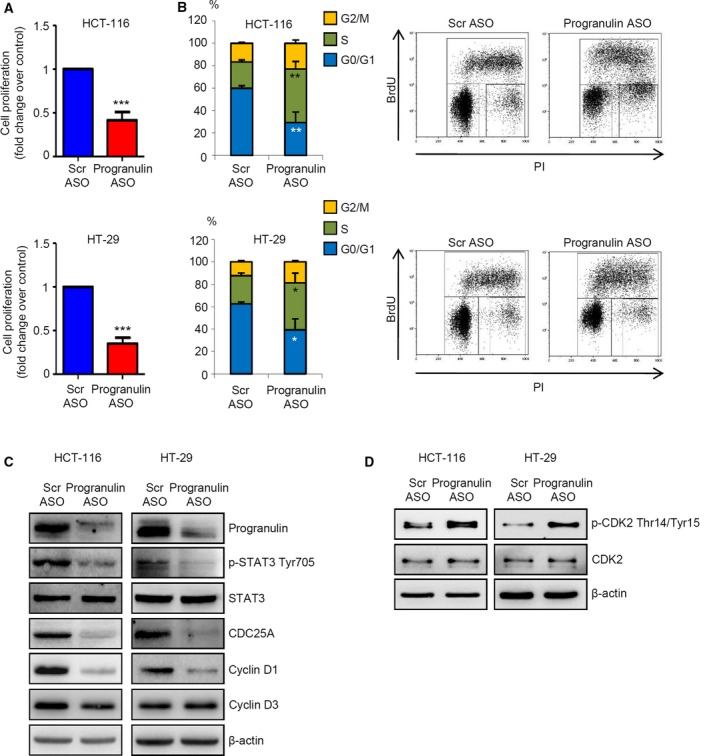Figure 5.

Progranulin knockdown negatively affects STAT3 oncogenic activity and CRC cell growth (A) Progranulin silencing impaired CRC cell proliferation. HCT‐116 and HT‐29 cells were transfected with either scrambled (Scr) or progranulin antisense oligonucleotide (ASO) (both used at 200 nm). After 24 h, cells were washed with PBS and cultured for further 24 h. Cell proliferation was assessed by 5‐bromodeoxyuridine (BrdU) proliferation assay kit. Data indicate mean ± SEM of four experiments. Differences were compared using the two‐tailed Student's t‐test. ***P < 0.001. (B) Progranulin ASO induces CRC cells to arrest in S phase of the cell cycle. HCT‐116 and HT‐29 cells were transfected with either scrambled (Scr) or progranulin antisense oligonucleotide (ASO) (both used at 200 nm). After 24 h, cells were washed with PBS and cultured for further 24 h. Cell cycle distribution was assessed by flow cytometry. Values are the percentages of cells in the different phases of cell cycle and indicate mean ± SD of four experiments. A significant increase in the number of cells that accumulate in S phase and a significant decrease in the number of cells in G0/G1 was seen in progranulin ASO‐transfected cells as compared with Scr ASO‐transfected cells (*P < 0.01, **P < 0.001). Differences were compared using the two‐tailed Student's t‐test. Right insets show representative dot‐plots of the cell cycle distribution. (C) Total proteins from HCT‐116 and HT‐29 cells treated as indicated in A were extracted and evaluated for progranulin, p‐STAT3 Tyr705, STAT3, CDC25A, cyclin D1, and cyclin D3 expression by western blotting. β‐actin was used as loading control. One of three representative experiments where similar results were obtained is shown. (D) Progranulin ASO enhances the expression of p‐CDK2. HCT‐116 and HT‐29 cells were treated as indicated in A. Phospho‐CDK2, CDK2, and β‐actin expression was analyzed by immunoblotting. One of three representative experiments in which similar results were obtained is shown.
